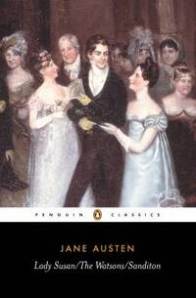Happy new year! It’s hard to believe that 2010 is already over and that it’s time to wrap up the reading challenges in which I participated over the year. I only signed up for 4 challenges, and I’m proud of myself for completing them all. Here’s what I read:
For the 2010 War Through the Generations Vietnam War Reading Challenge that I co-hosted with Serena (which ran from Jan. 1, 2010-Dec. 31, 2010), I signed up for 11+ books. Although I didn’t read as many as I’d hoped for this challenge, I still completed it by finishing 13 books.
1. Playing Basketball With the Viet Cong by Kevin Bowen
2. The Lotus Eaters by Tatjana Soli
3. Dien Cai Dau by Yusef Komunyakaa
4. Song of Napalm by Bruce Weigl
5. Letter to My Daughter by George Bishop
6. Let the Great World Spin by Colum McCann
7. A Hundred Feet Over Hell by Jim Hooper
8. Paco’s Story by Larry Heinemann
9. The Fall of Saigon: The End of the Vietnam War by Michael V. Uschan
10. Fatal Light by Richard Currey
11. The Things They Carried by Tim O’Brien
12. Shooting the Moon by Frances O’Roark Dowell
13. Matterhorn by Karl Marlantes
For the 2010 Jane Austen Reading Challenge hosted by The Life (and) Lies of an inanimate flying object (which ran from Jan. 1, 2010-Dec. 31, 2010), I signed up for the “Fanatic” level of 5+ Jane Austen retellings, sequels, or reimaginings and 6+ original works by Jane Austen. I finished this one by reading 7 in the retellings/sequels/reimaginings category and 6 works by Jane Austen.
1. Mansfield Park Revisited by Joan Aiken
2. Mr. Fitzwilliam Darcy: The Last Man in the World by Abigail Reynolds
3. The Darcys & the Bingleys by Marsha Altman
4. The Plight of the Darcy Brothers by Marsha Altman
5. Mr. Darcy’s Great Escape by Marsha Altman
6. Pride and Prejudice and Zombies: Dawn of the Dreadfuls by Steve Hockensmith
7. Mr. Darcy Broke My Heart by Beth Patillo
******
1. Sanditon by Jane Austen
2. Persuasion by Jane Austen
3. Lady Susan by Jane Austen
4. The Watsons by Jane Austen
5. Northanger Abbey by Jane Austen
6. Love and Freindship by Jane Austen
For the 2010 Everything Austen II Challenge hosted by Stephanie’s Written Word (which ran from July 1, 2010-Jan. 1, 2011), I had to read 6 Austen-themed books. I went a little overboard on this challenge, and finished 13 books.
1. To Conquer Mr. Darcy by Abigail Reynolds
2. Mr. Darcy’s Little Sister by C. Allyn Pierson
3. Darcy’s Voyage by Kara Louise
4. Persuasion by Jane Austen
5. Captain Wentworth’s Diary by Amanda Grange
6. Anne Elliot, A New Beginning by Mary Lydon Simonsen
7. Mr. Darcy’s Obsession by Abigail Reynolds
8. Jane Bites Back by Michael Thomas Ford
9. Lady Susan by Jane Austen
10. The Watsons by Jane Austen
11. Pemberley Ranch by Jack Caldwell
12. Northanger Abbey by Jane Austen
13. Love and Freindship by Jane Austen
For the 2010 Maud Hart Lovelace Reading Challenge hosted by A Library is a Hospital for the Mind (which was held during the month of October), I had to read just 1 book by Maud Hart Lovelace, but I completed the challenge by reading 3.
1. Emily of Deep Valley by Maud Hart Lovelace
2. Betsy Was a Junior by Maud Hart Lovelace
3. Betsy and Joe by Maud Hart Lovelace
How did you do on your 2010 reading challenges, and what are you plans for 2011? I will be posting my 2011 challenge sign ups soon.
Wishing you all the best in 2011!
© 2011 Anna Horner of Diary of an Eccentric. All Rights Reserved. Please do not reproduce or republish content without permission.














